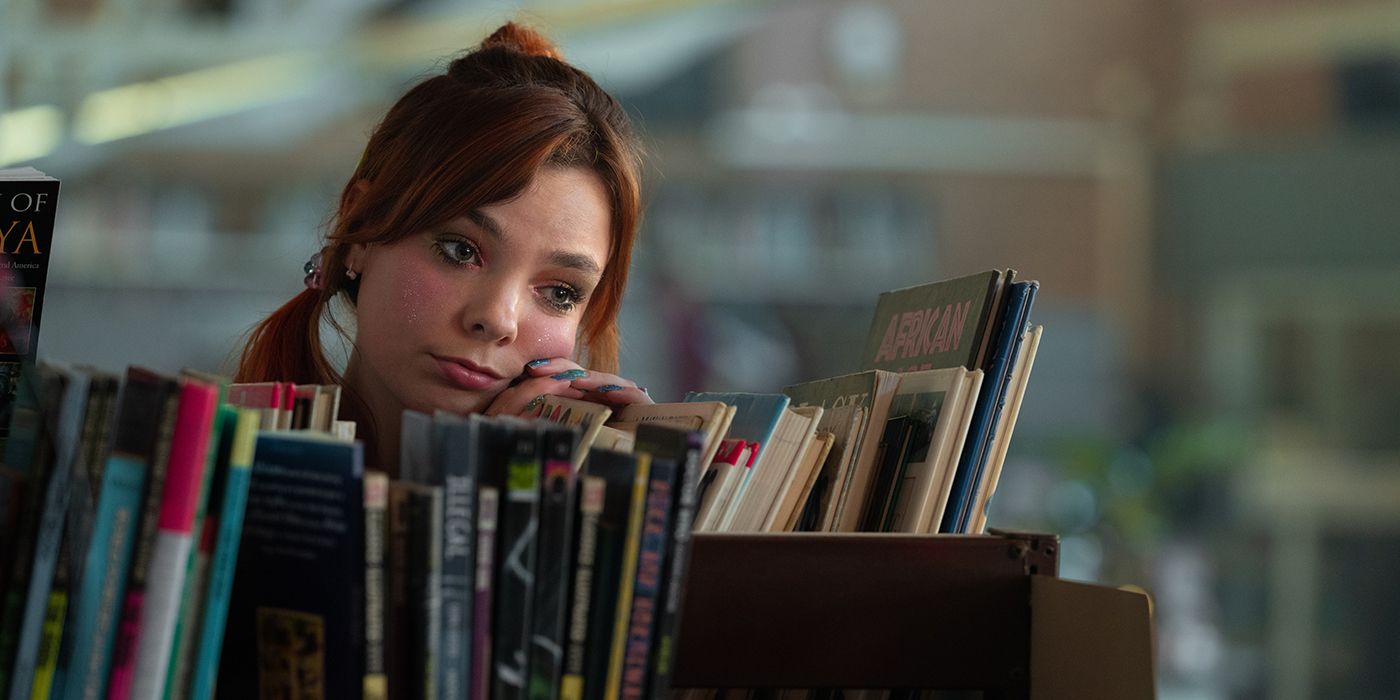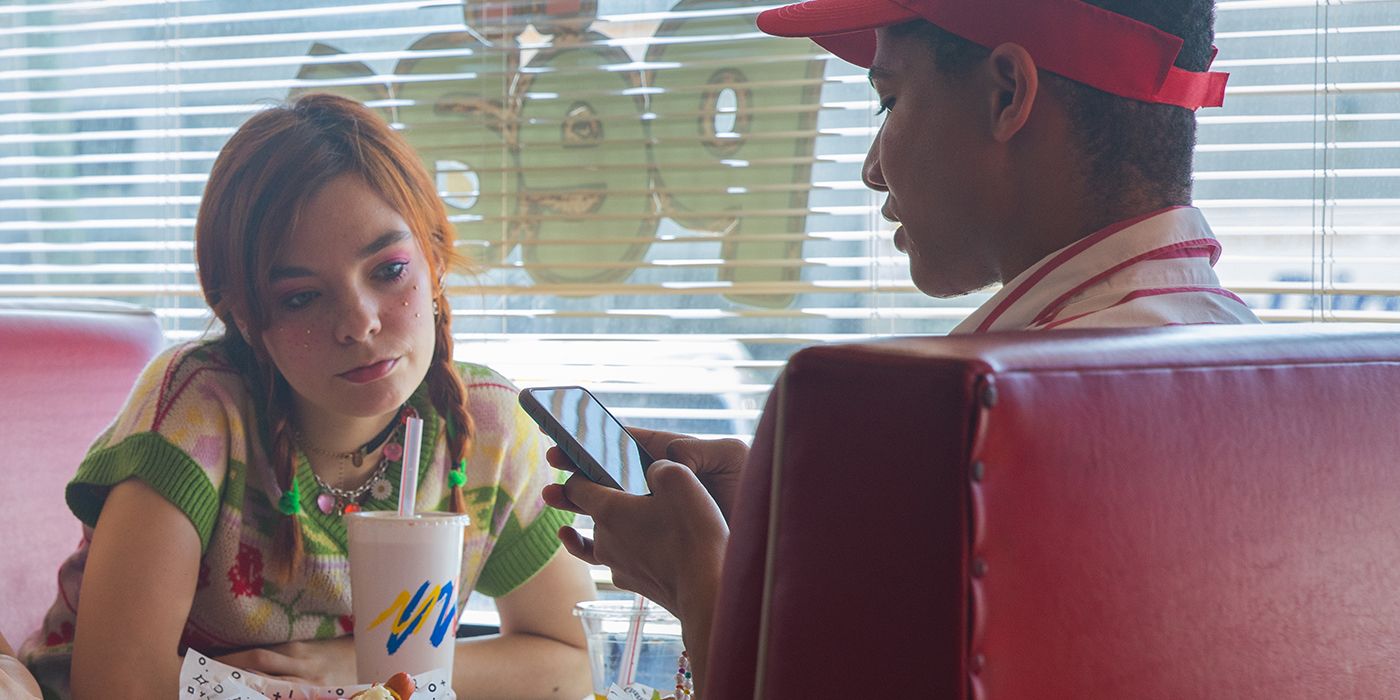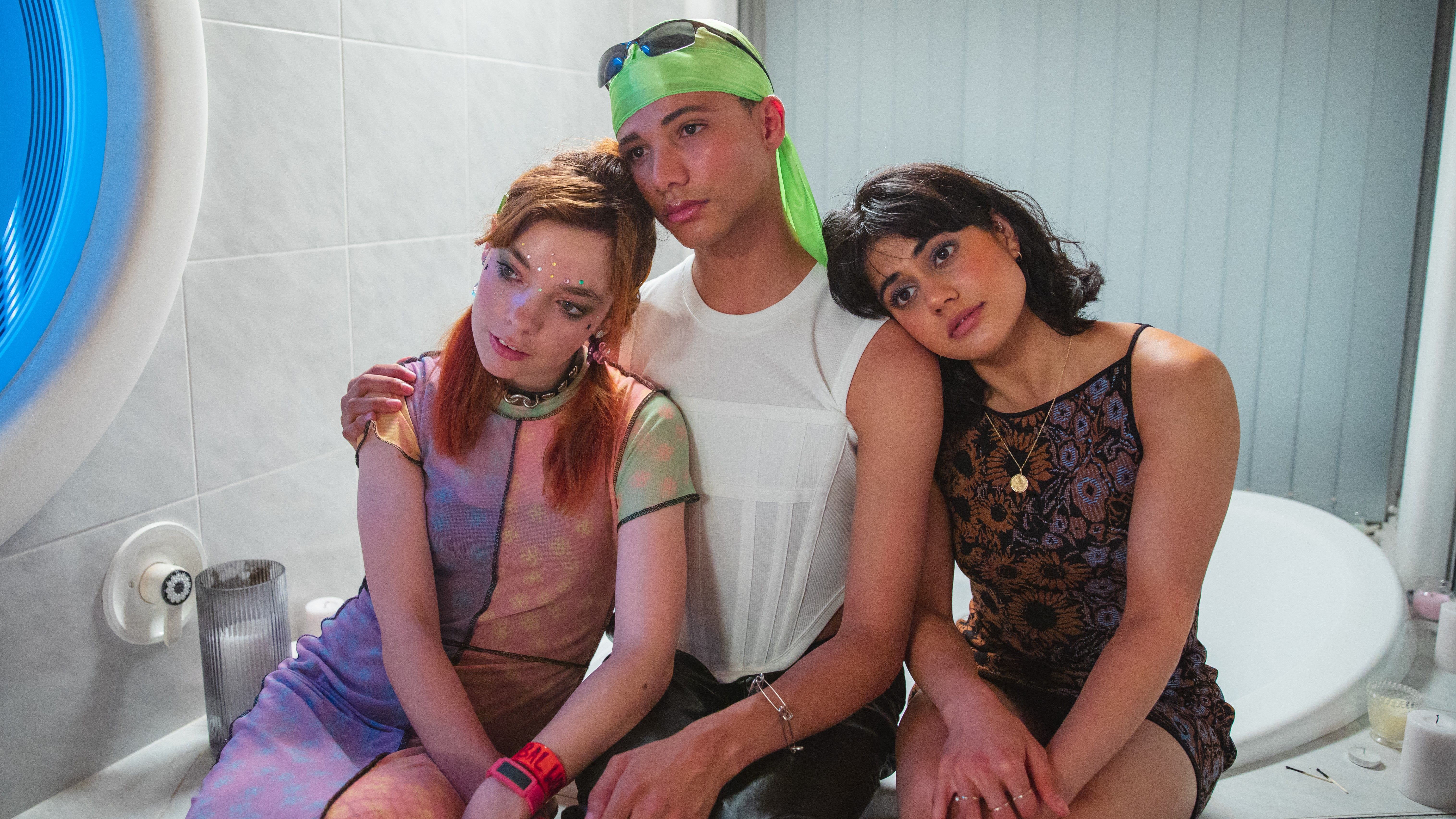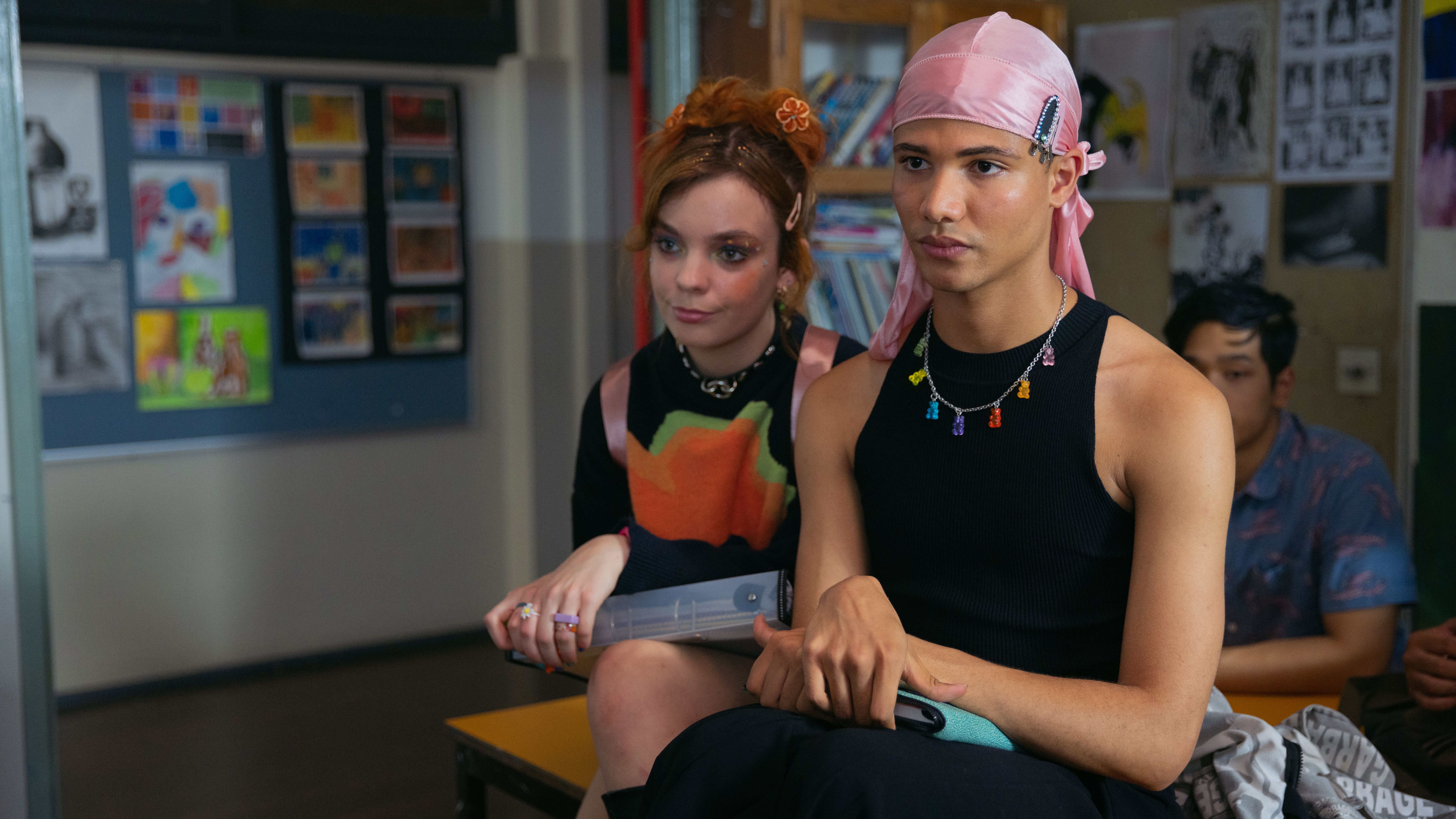The following contains spoilers for the Netflix series, Heartbreak High.
Heartbreak High (2022) has just released to a lot of buzz as a fresh take on an old Australian classic, with Hartley High receiving a massive facelift. Set about 30 years after the original show, there are new teachers, and a class of new students with new daily struggles. This isn't the 1990s anymore, and there is certain freedom having your show on Netflix rather than network television. Unlike its predecessor, there are no deaths in this show, but they deal with deeper and more complex issues through the characters without it. As television and on-screen representation has evolved, many people have seen their faces and lives dramatized, and Heartbreak High is not without an incredibly diverse array of moody teenagers worthy of their own deep dives. There is one student who, as I watched episode after episode, had me teary eyed, emotionally invested and feeling represented properly, which still feels like an unfortunate rarity.
Quinn "Quinni" Gallagher-Jones, played by actress and neurodiversity advocate Chloe Hayden, is one of the students in a sexual literacy class after her name appears in a map of school hook-ups. She takes the role of the naive and boundlessly optimistic free spirit at first, passionately supportive of her friends, an intuitive artist with a fair share of quirks and a very stable home life. She has a routine in place for herself, and she knows what makes the overwhelming outside world a comfortable place for her, which allows her to both have all the fun a teenager has while also being mindful of her limits. We find out early in the show — if you haven't learned through the show's promotion — that she has Autism Spectrum Disorder (ASD), and as the show continues we learn how this affects her, from her day-to-day life to her intimate relationships.
I felt incredibly healed watching Quinni in this show, especially after reeling from the cringe-worthy Music — Quinni herself doesn't hesitate in taking shots at the film also — and that's down to the performance of Hayden. The fact that an autistic person playing an autistic character has only happened a handful of times in media history, and only in the past couple of years, is an unfortunate reality. Kayla Cromer as Matilda in Everything's Gonna Be Okay was a revelation, and Hayden in Heartbreak High was a brilliant next step. While at times Matilda does fall into some of the more regular archetypes we are used to for autistic characters, Quinni defies all expectations.
Subverting Stereotypes In the Best Possible Way
There are certain stereotypes that are immediately thrown out the window when Quinni is presented. Stereotypes about the chastity of autistic people, or their emotional unintelligence, all tying to the idea that we have a childlike mentality. All entirely untrue, and all unfortunately perpetuated through fiction. Quinni is not a super-genius, she is not a child in an adult's body, she is just a teenager who drinks, swears, and frankly discusses sex, though at times too frankly. However, the show runners do not portray her frankness, her social anxiety or her sensitivity through the lens of people reacting to her; instead we see the world through her eyes.
We become passionate about what she's passionate about, we want her to succeed, and pursue the things she's passionate about rather than conforming to the expectations and wants of those around her. We want to see her make it to a book launch on time, or win a Playstation voucher, or just hang out with her pet frog. We feel the distress she feels through the masterful sound editing and cinematography, and we feel bad when she's met with eye-rolls or derision, coming at these scenarios with empathy rather than dismissal. Many of Quinni's experiences, helped by the lived experiences of Hayden, reflect those of many autistic girls specifically. How they're observed to imitate those around them, they're socialized to mask more, to put on a neurotypical face, which is rather breakable when put in overwhelming situations, and Quinni very openly, and refreshingly, speaks on these experiences.
A Realistic View of Relationships
Of course, in a show about relationships, we see the most of Quinni's developments through the bonds she has with other people — specifically, her love interest Sasha (Gemma Chua-Tran), and her best friend Darren (James Majoos). Quinni's story is one of self-advocacy and the communication of feelings and needs, of empowering herself as she navigates a new romantic interest. What is fascinating about her story arc in the show is that you don't so much root for the romance to succeed, you root for Quinni to shed her anxieties about people no longer liking her when she's not masking.
Her relationship with Sasha starts out very sweet, but it becomes very clear how little Sasha understands her. First Sasha feels the need to coddle Quinni, protecting her from things she feels she shouldn't be exposed to, then being dismissive of how important sticking to plans and routines are for her, and finally, heartbreakingly, deriding her special interests. And all through it, we are emphatically on Quinni's side because whether you're autistic or not, having someone do that to you would majorly suck. Sasha is not a bad person, just a regular, self-centered teenager, but it was incredibly heartening to see how quick Quinni is to stand up for herself.
The strongest and most enduring relationship in the whole show, however, is the friendship between Quinni and Darren. They start and end the series as incredibly close companions who are ride-or-die for each other. Darren, despite coming off as callous and catty, without fail comes to Quinni's aid when she needs it, and Quinni is Darren's rock through their own turbulent storyline. These are two people that bond not only over being incredibly stylish, artistic and outgoing, but over the same, deeply held fear: that they, for their own reasons, are hard to love. When in every show with even an implied autistic character shows their friendships as fraught with stress and misunderstandings, with the autistic character almost feeling like a burden to their friends at times, this friendship being the one with absolutely no conflict or drama is a huge subversion.
I wish that I had a character like Quinni when I was in high school as a queer, autistic teenager. My dark fantasy book series was a melodramatic musical. I too, experienced the moments of opening my passion up to people only to be met with dismissal, I too was overprotected, and all the things that Quinni embraces with joy I now look back on with embarrassment. This character and performance showed me that I should be kinder to my teenaged self, and also shows the importance of accurate, multifaceted and positive representation.
Quinn Gallagher-Jones might be one of the best autistic characters ever put to screen. I hope to see much more of her, and the energetically outstanding Chloe Hayden, in the future.




